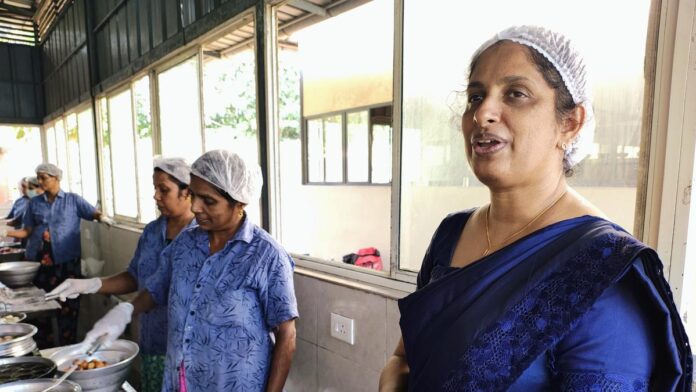It is a slightly steep climb up a narrow, barely-tarred road facing Vichattu Kavala bus stop — over 12 kilometres away from Thodupuzha — to reach Jasmine and Aji’s residence. The house overlooks a hill with patches of green, slightly elevated above a few dwellings with brick and metal roofings. There is a porch in the front covered with gravel on which ragi grains are laid down to dry, secured under a metal grill.
Apart from the birds chirping, the only sound that persists is the quaint sizzle of hot oil. The source of this sound can be traced to a small neyyappam making unit, Appoos Homemade Foods, near the house. The sweet, rice-based fritter, prepared with rice flour, sugar, milk, semolina and a touch of cumin seeds, is fried in a metal mould with circular cells filled with palm oil, raging to turn the raw batter into crispy, sweet goodness. Unlike the usual neyyappams with a slightly larger radius, Jasmine’s are around two centimetres in diameter.
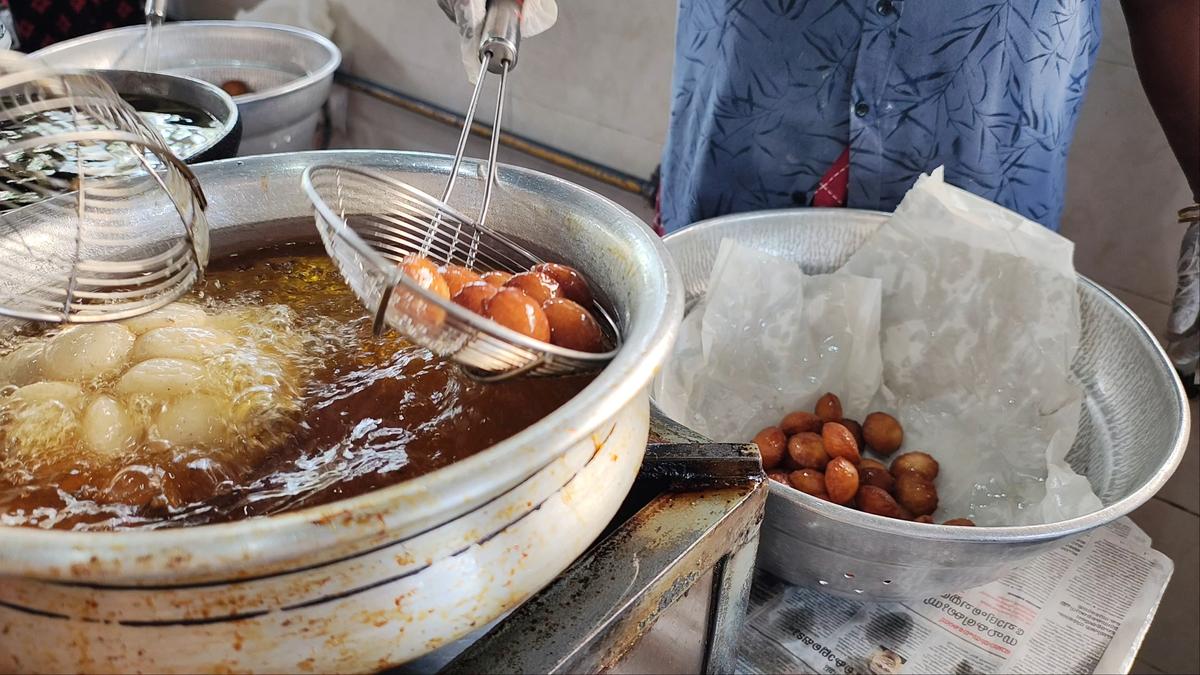
Neyyapams being fried in palm oil
| Photo Credit:
Nainu Oommen
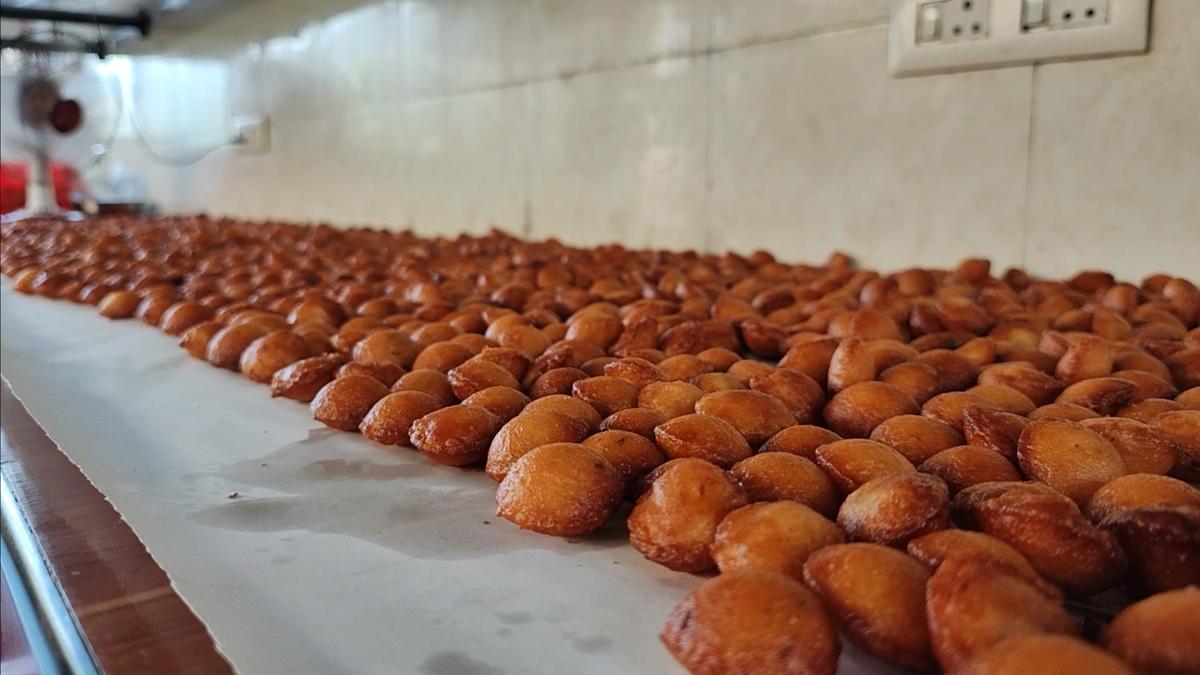
Neyyapams kept out for cooling after being fried
| Photo Credit:
Nainu Oommen
Right beside heaps of the snack kept to cool down before packing, a dozen women are at work, standing in two lines. On one end of the row, we see visually challenged Jasmine Aji, who owns and runs the unit, where around 120 kilograms of neyyappams are prepared daily.
It was in 2001 that Jasmine developed a discomfort in her eyes. She and her husband, were then in Chennai, seeking treatment for their son Akhil (affectionately called Appoo), who has cerebral palsy, a neurological disorder affecting movement, posture, and balance.
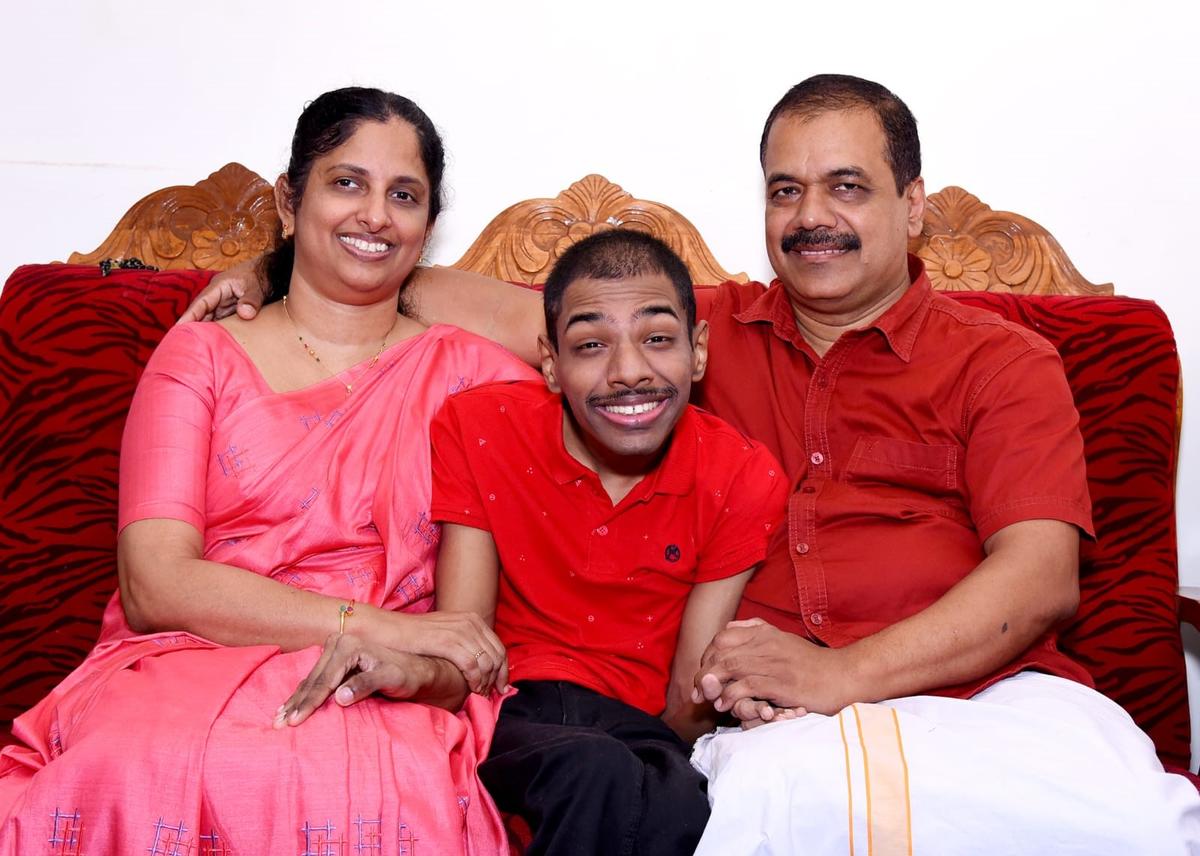
Jasmine, Aji and their son Akhil
| Photo Credit:
Special Arrangement
Jasmine was diagnosed with a condition called retinitis pigmentosa, which would progressively lead to complete blindness in old age. This genetic disorder affects the retina, the light-sensitive layer at the back of the eye.
However, Jasmine had hope. “I was told by the doctors that maybe in five years, they might find a cure for this, with the development of medical science.”
While treatments were going on for her and Akhil, Jasmine regularly visited the Basilica of Our Lady of Good Health, Velankanni. It was one of the priests there, who asked her to start something of her own, to keep her mind away from the illnesses affecting her family.
After a year and a half in Chennai, the family returned to Thodupuzha. After their return, Jasmine made neyyappams, a tea-time snack one evening. “Aji and his mother loved it and so I had to make them again. Later, he suggested we sell a few at our store,” says Jasmine.
The appams sold like hotcakes with customers coming back for more. “We had no plans to continue it. But when people started enquiring about it, Aji said that we should stock them regularly. We just had to prepare them after our other chores were done,” Jasmine adds.
The business slowly took off without much investment. They gradually expanded their workforce as well to keep up with orders.
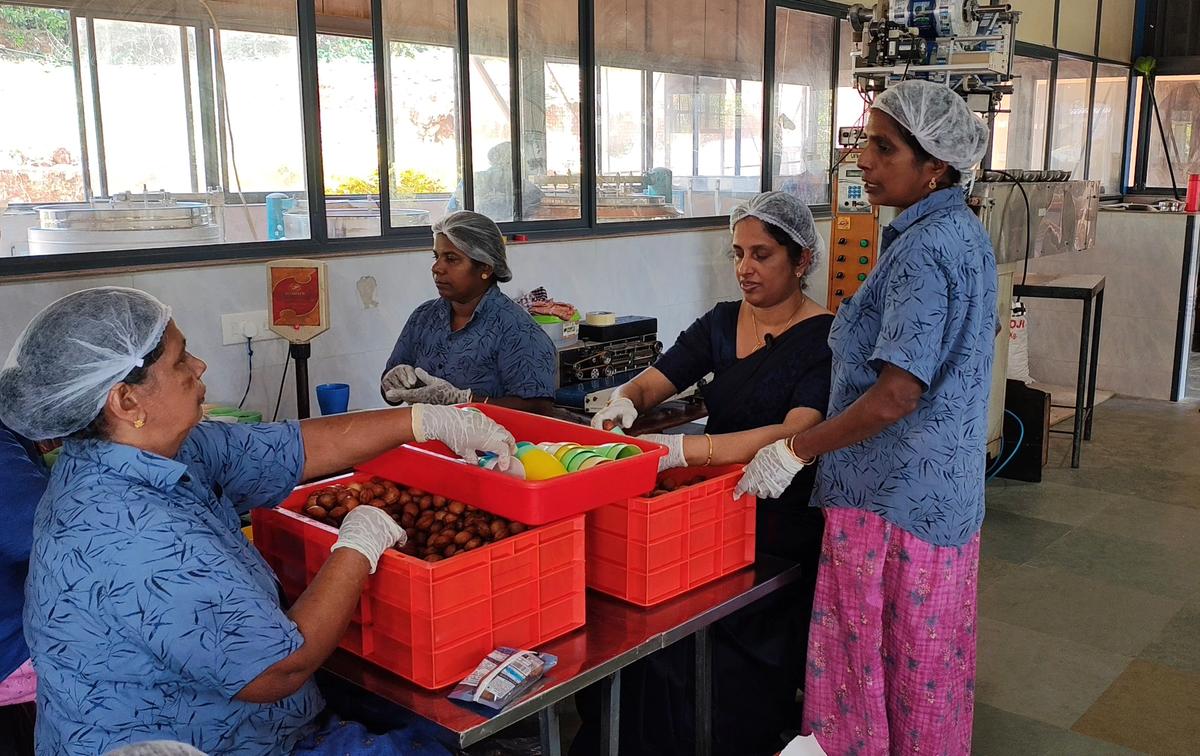
Jasmine helping with dividing the appams to be packed
| Photo Credit:
Nainu Oommen
Unfortunately, while her business was succeeding, Jasmine’s health took a hit. In 2005, she was diagnosed with trigeminal neuralgia, which caused severe pain on one side of her face. This chronic disorder causes intense pain attacks due to pressure exerted by blood vessels on nerves. Although Jasmine was under medication for two years, she restarted cooking once the pain subsided. By 2008, she lost her peripheral vision and had cataract in her straight vision. “The doctors in Chennai suggested surgery for the latter for relief but it didn’t help,” she says.
After the operation, she stopped standing near the hot oil and her staff would help with the frying of the appams. “Slowly we started cooking again for three days a week. We used to make around 60 kilograms a day then,” says Jasmine.
In 2009, as part of the annual festival at the St Mary’s Forane Church, Bharananganam, organisers asked Jasmine to supply 1,000 kilograms of neyyappams. “It was daunting since we only had six staff and limited utensils. We rented utensils and hired extra hands. In 10 days, we prepared around 1,400 kilograms of neyyappams which were given to two churches, and multiple stores in the area. That was a turning point,” she says.
By 2010, Appoos Homemade Foods started regularly supplying to the church and opened a unit in a shed outside their residence. They hired a dozen hands, bought a powder mill, a mixer for the batter and so on. Orders came from other churches as well.
In the meantime, Jasmine’s vision was deteriorating faster than the doctors had predicted. “They had told me that my vision would only go by my 60s and when it started happening so early, I was upset,” she says. However, Jasmine had prepared herself for the worst, by working in the kitchen with her eyes shut. “From chopping vegetables to cleaning fish and preparing meat, I began doing them with my eyes closed.”
In 2011, Jasmine lost her vision completely. “Since I had prepared for the same, I could handle it. I was the one who would still mix the ingredients for the batter. I was working everywhere except near the heat. I could touch and say whether the appams were cooked, whether they were of the right size and so on. One neyyappam is eight grams — I could feel it by touch,” she says.
By 2013-14, the company purchased automatic packing machines, roasters and a generator and hired more staff on a temporary basis. They prepared nearly 7,000 kilograms of neyyappams during the festival time at the Bharananganam church. They even prepared 720 kilograms on one of those days, says Jasmine.
Following the pandemic, they also got into the business of selling rice flour, wheat flour, ragi flour, avalosu podi (a traditional powdered snack made from roasted rice flour and grated coconut), varieties of puttu podi and so on.
“I wanted a unit, that’s all. Now both my family and people around me have a source of income,” says Jasmine. She takes care of the accounts while Aji helps her with delivery and machines.
Jasmine conducts motivational classes as well. “Our life should inspire others. Women should realise that even if they stay home, they can do things. If someone like me can do it then others can too,” she says. “We started with two kilograms of raw rice and now we are up to 250 kilograms.”
The entrepreneur says, “My son is 26 years old, but he still needs to be taken care of. He needs to be changed and fed. Even though there are several challenges, I don’t allow them to bring me down. We should find what’s positive in our lives and move forward.”
Published – January 15, 2025 04:55 pm IST
#Visually #Challenged #Jasmine #Ajis #neyyappam #Journey #Keralas #Thodupuzha
